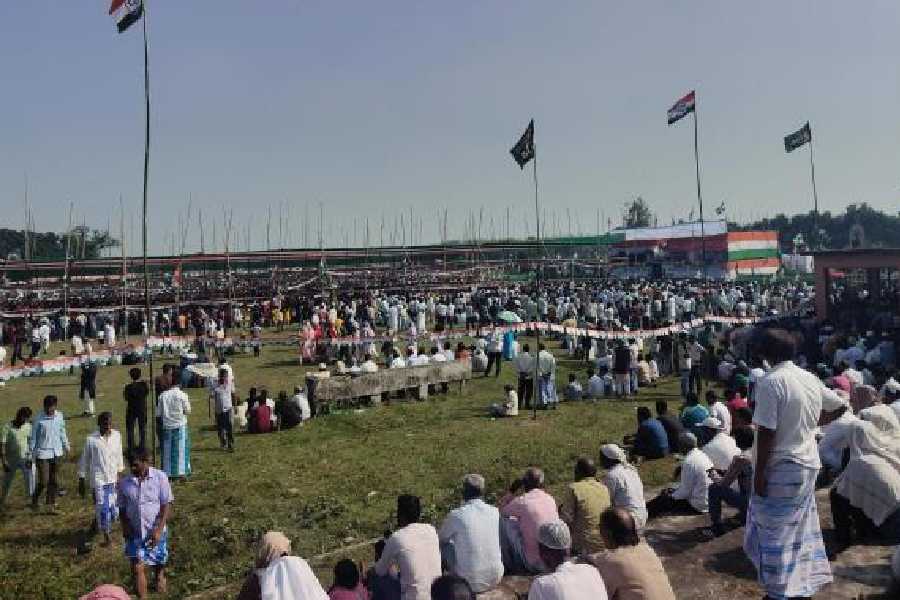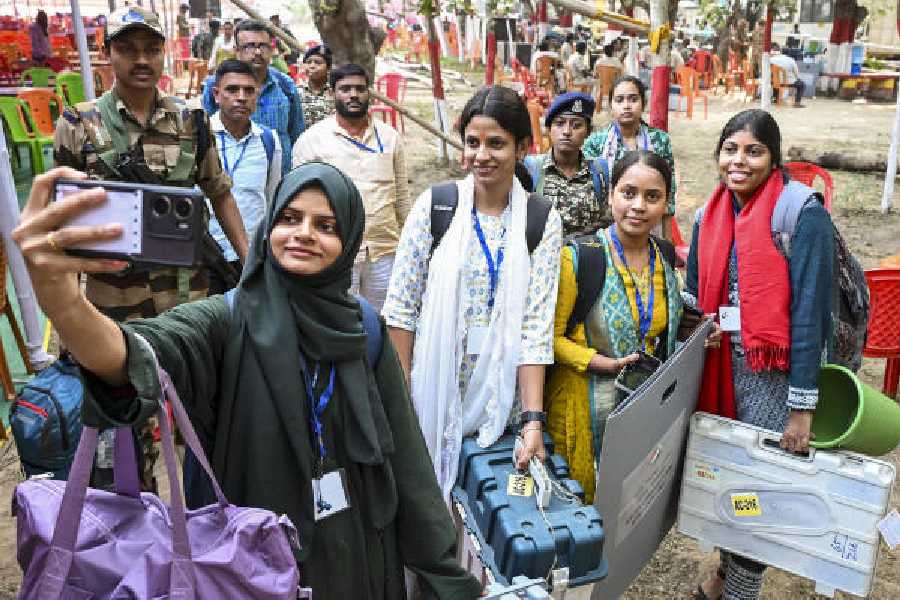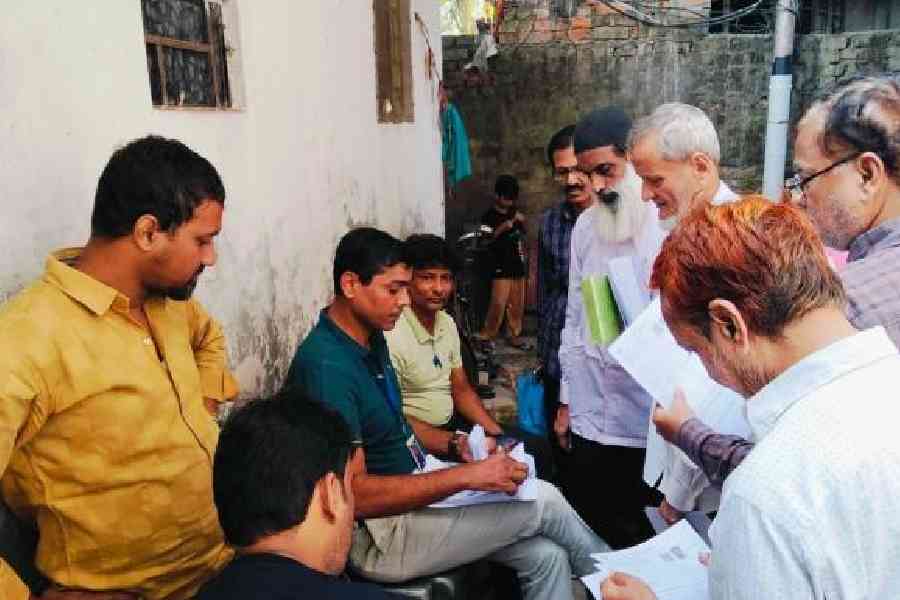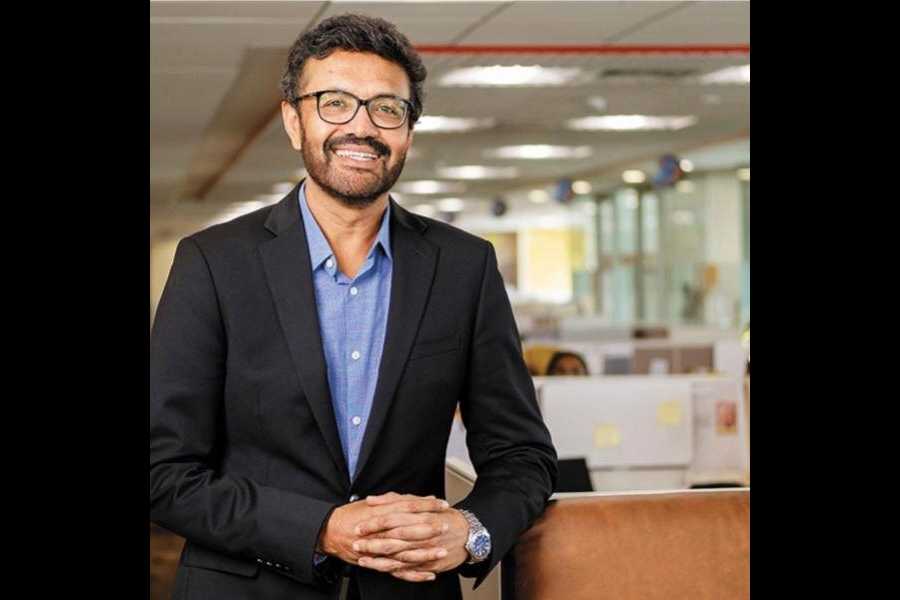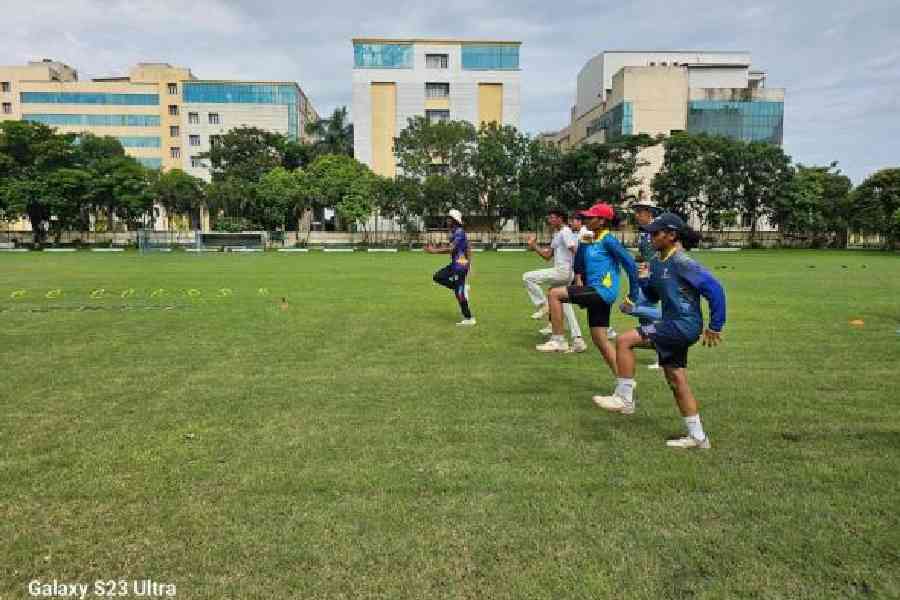 |
| Assam chief minister Tarun Gogoi, Bengal minister Pratim Chatterjee and actress Sharmila Tagore light the inaugural lamp at the festival. Picture by Aranya Sen |
Calcutta, May 4: When Jyoti Prasad Agarwala premiered the first film in Assamese, Joymoti, in Calcutta in 1935, it was believed to be the perfect beginning for ethnic cinema from a cloistered region.
Joymoti garnered fulsome praise from critics, but turned out to be a commercial disaster. Seventy-two years later, the story has not changed: Assamese cinema continues to be feted nationally as well as abroad, but it is still a struggle for meaningful films from the state to be commercially viable. So, it is back to Calcutta for another attempt to showcase the tapestry of Assamese cinema before an audience that at least appreciates cinematic art that goes beyond the cut-and-thrust of commercially-driven films.
Organised by the Assam State Film (Finance and Development) Corporation Ltd in collaboration with the Union information and broadcasting ministry, the Bodoland Territorial Council and Nandan, the Festival of Films from Assam that began today is focusing on Bodo cinema.
Pinky Brahma Choudhury’s Duphang-ni Solo, the first film to be screened, was made in 1997 and has done the rounds of film festivals. So have the films of Jwangdao Bodosa, formerly known as Pradip Brahma. Bodosa made the first film in the Bodo language, Aleyaron, in 1984 and has since added three more to his oeuvre.
The other films chosen for the four-day festival are Jahnu Barua’s Konikar Ramdhenu, Munin Barua’s Dinabandhu, Bodosa’s Rape in the Virgin Forest, the late Bhabendra Nath Saikia’s acclaimed Sarothi, Gautam Bora’s Wosobipo (the first film in Karbi), Phaylaw Kamleswar’s Sayaram Gojoula and Bidyut Chakraborty’s evocative Nishiddha Nodi.
Bobbeeta Sharma, chairperson of the ASFFDC, described the films to be screened in Calcutta as truly representative of “ethno cinema”. She said the corporation has been trying to pull regional cinema out of the morass it has got into with synergised promotion and financing.
Sharma said the government has already taken the big step of “proposing” to plough back revenue garnered by way of entertainment tax back into regional cinema.
Chief minister Tarun Gogoi inaugurated the festival with an assurance of “continued support” to the struggling industry. Actress and censor board chairperson Sharmila Tagore said it was heartening to see the resilience of filmmakers from Assam.
Khampa Borgoyari, the deputy chief of the Bodoland Territorial Council, thanked the organisers for choosing to focus on Bodo cinema.


